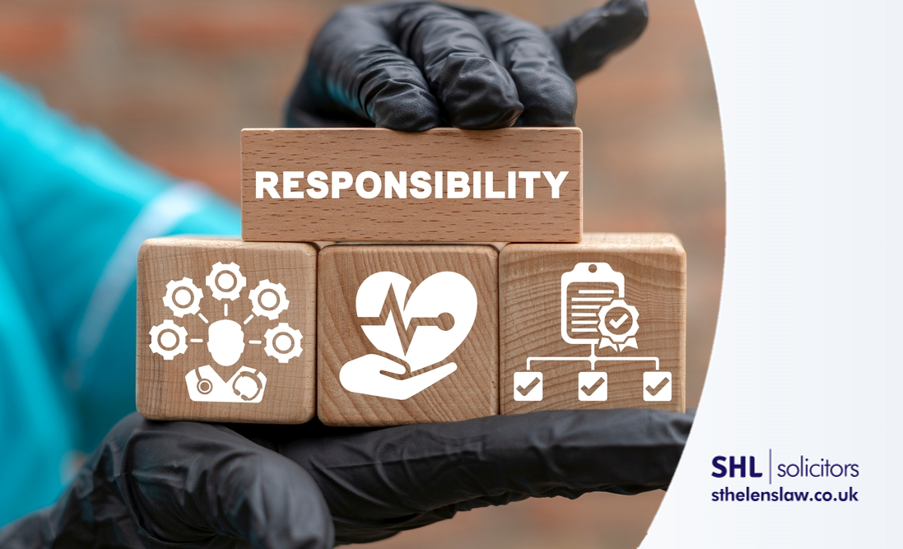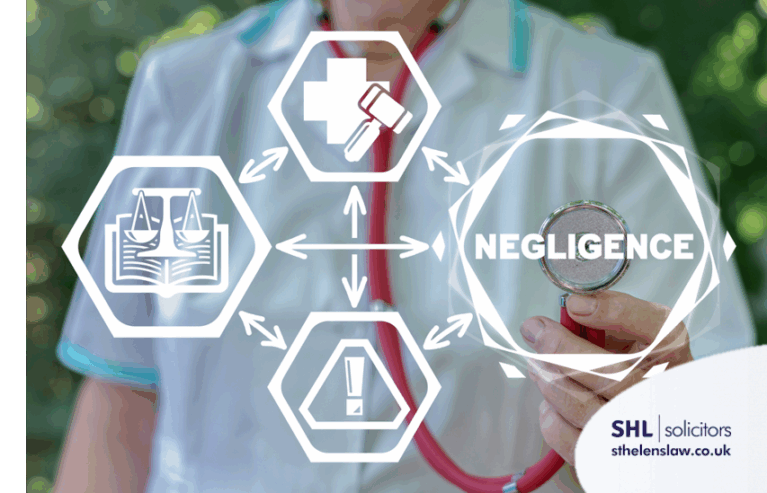Losing a legal battle is tough. But this can be especially emotionally distressing if the case in question is a clinical negligence claim. If something went seriously wrong during your care, and it was through no fault of your own, you should be entitled to the full financial compensation amount. So, why would this not happen?
According to the NHS Resolution’s Annual Report 2023/24, only 52% of claims made received a financial payout. This figure may sound low, but it’s even more concerning when you learn that, just a couple of years earlier, the figure sat at a measly 48%.
If you feel you’ve been treated poorly by the NHS or a healthcare professional and want to explore your legal options, at St Helens Law, our specialist team of clinical negligence solicitors and compensation experts is here to guide you through the process, maximising your chances of a successful claim. Get in touch with a member of the team to start your journey today, or keep reading to learn more.
Why So Many Medical Negligence Claims Are Unsuccessful
Time Limitations
This is one of the most common ways clinical negligence claims fail, which is a dagger through the heart for many, as it’s also one of the most avoidable.
Generally, you have three years to file a clinical negligence claim, though this statistic also comes with its own strict rules. The countdown usually begins from one of two points:
- The date the negligent act occurred. Or…
- The “date of knowledge” from which you were aware that something was amiss in your medical care. This can become very complicated in cases where there is a significant time gap – i.e. misdiagnoses or delayed issues from surgical errors.
Whether or not your circumstances warrant a claim, if you miss this three-year window, you lose the opportunity to make one. In this instance, the phrase “slow and steady wins the race” may actually lose you the race, so be sure to act promptly and seek legal representation as soon as possible.
Insufficient Evidence/ Weak Expert Support
If you’re making a claim, it’s the responsibility of you and your legal team to prove beyond doubt that two things occurred:
- The care you received was negligent. And…
- This negligence caused you harm.
Without sufficient evidence backed up by expert opinions, your claim has little to no chance of being successful. This is why it’s so important to arm yourself with a team of legal specialists experienced in winning such cases, like St Helens Law.
It’s our job to gather the medical records and evidence, and to produce a strong, non-contradictory and ironclad argument that displays the negligent care you received in the greatest detail, to produce a winning result.
Causation
This is yet another hurdle that many cases fail to overcome. Your negligent treatment may be proven by your team. But there is also a responsibility for you to prove this specific treatment is what led to you sustaining physical or mental harm.
In other words, had the negligent treatment not occurred, would you still have suffered harm or not? If the answer is yes, and you cannot link one to the other, there is no direct causation, and you likely don’t have a case.
But if you’re able to prove that the negligent care you received was the direct cause, you’re in a promising position from a legal standpoint and should pursue your claim.
A Powerful Defence
Despite their position as providers of good health and recovery, medical service providers (including both the NHS and private firms) still pay excessive legal fees for teams to work on their behalf and defend them against scrutiny.
These are often lawyers with years of experience and those who specialise in the medical field, turning it into a real battle of wills, wits and evidence in clinical negligence claims.
Unfortunately, this means that even if you have a rock-solid claim, the other side still has a chance at success due to savvy legal techniques and exceptional knowledge of how to “play the system.”
To counteract this, you should side with clinical negligence solicitors who are equally experienced and committed to a successful outcome, like the team at St Helens Law.
Rejected Settlement Offers
Surprisingly, it is still possible to lose a claim for medical negligence even if the opposing side offers you a settlement to keep you satisfied.
Let’s say, for example, you make a claim against the NHS for negligent treatment, and they offer you a settlement figure. What if you reject that figure because you think it’s too low?
Well, if the case goes to court and the case is not found in your favour, you’ll walk away with nothing, leaving you in an even worse spot than before.

What Can You Do After an Unsuccessful Medical Negligence Compensation Claim?
If your claim didn’t go the way you hoped or was thrown out, don’t panic right away. There might be a route to challenge it, like an appeal or a judicial review, depending on why it failed in the first place.
If the claim does fail, the most important thing is to act fast and get a second opinion. A fresh set of eyes from a specialist solicitor (like the team at St Helens Law) can quickly figure out if the initial failure was due to something fixable (maybe a weak expert report?) or if there’s a serious, fundamental problem with proving that the negligence actually caused your harm.
Give Yourself the Best Shot at a Successful Clinical Negligence Claim with St Helens Law
Feel like the medical care you received was subpar and want to make a claim? Or perhaps you underwent a specific procedure and want to make a surgical negligence claim? St Helens Law is on your side.
Our medical negligence solicitors will listen intently to your story, determine whether you received substandard care from your healthcare provider, and offer our professional opinion on how much compensation you may be entitled to. This includes both medical treatment offered by the NHS and private treatment.
Whether you’re looking for more information on medical negligence cases, the consequences of medical malpractice, the claims process in general, legal costs and more, we’re here to give you all the knowledge you need.
Get in touch with a member of the team via the form below, and we’ll be back in touch shortly.


